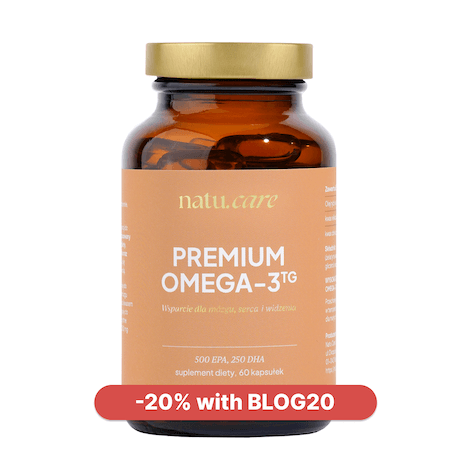Antioxidants: what they are and how they work + natural examples in the diet
They fight free radicals and take care of our health. See how to provide antioxidants in food.


Learn more about our editorial process
.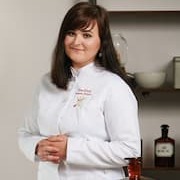

Learn more about our editorial process
.

Learn more about our editorial process
.

Learn more about our editorial process
.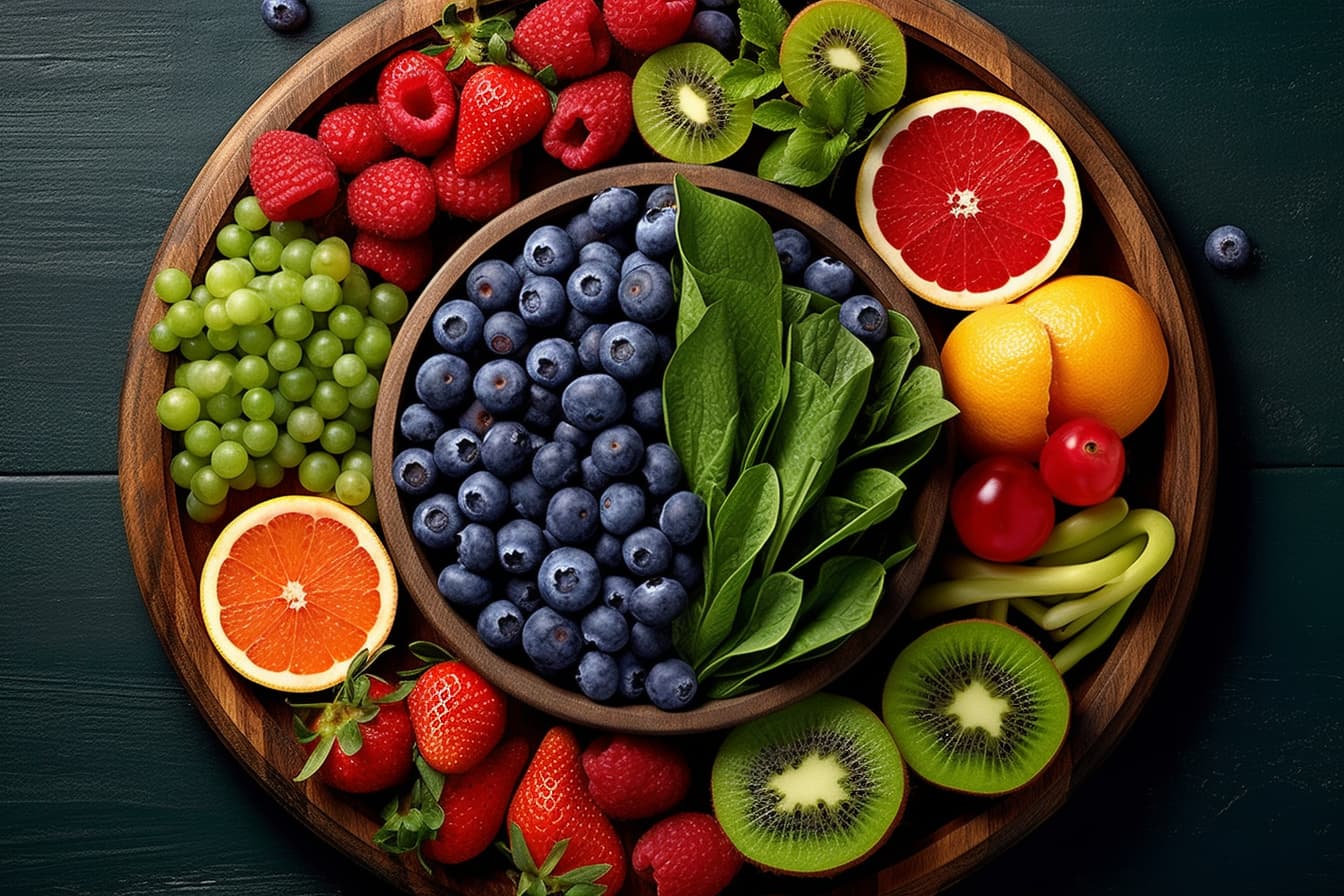
Why you can trust us
Articles on Natu.Care are written based on scientific research, data from government websites and other reliable sources. The texts are written in cooperation with doctors, nutritionists and other health and beauty experts. Articles are reviewed before publication and during significant updates.
.Learn more about our editorial process
.Information about advertisements
Content on Natu.Care may contain links to products from the sale of which we may receive a commission. When creating content, we adhere to high editorial standards and take care to be objective about the products discussed. The presence of affiliate links is not dictated by our partners, and we select the products we review ourselves completely independently.
.Learn more about our terms and Conditions
.Antioxidants are like firefighters putting out a fire. Only the fire in your body is not the actual fire, but free radicals. These are perishable molecules that become very dangerous if there are more of them than antioxidants.
That is why, together with Ilona Krzak, MSc, pharmacist, and clinical nutritionist, Julia Skrajda, we will present you with the most important information about antioxidants and suggesta good fire extinguisher (their sources in the diet).
From this article you will learn:
.- What antioxidants are and which are the best ones.
- How antioxidants work.
- How antioxidants work. .
- What foods there are antioxidants in.
- How antioxidants work.
- What are good dietary supplements with antioxidants. .
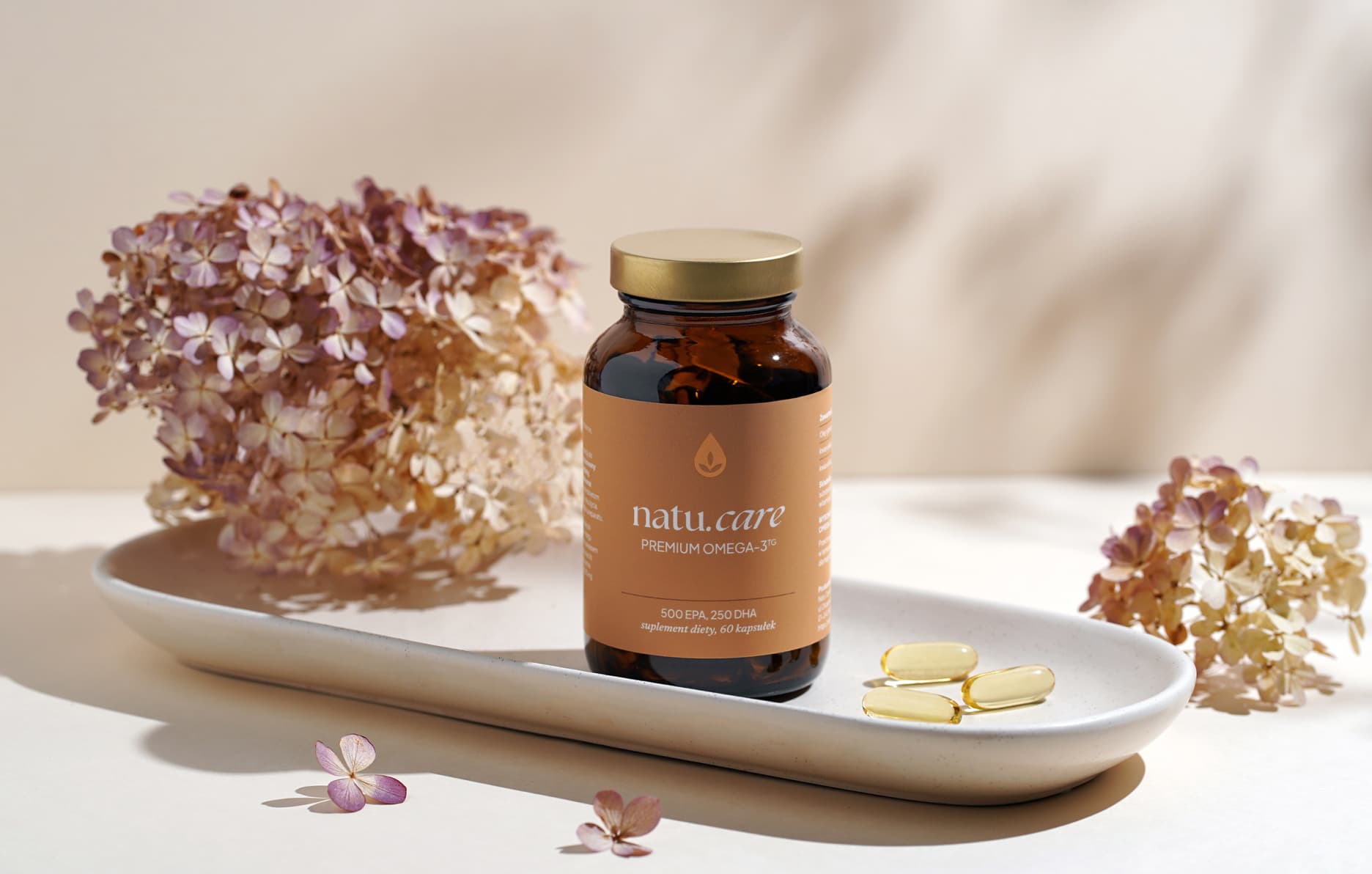
Sprawdź, za co pokochały go tysiące klientek Natu.Care Premium Omega-3ᵀᴳ -15% z kodem BLOG15
Natu.Care Omega-3ᵀᴳ Premium
Natu.Care Omega-3ᵀᴳ Premium dla zdrowia serca, mózgu i odporności. Najlepsza przyswajalność. Optymalna dawka 750 mg. Przebadana przez niezależne laboratorium.
Zobacz więcej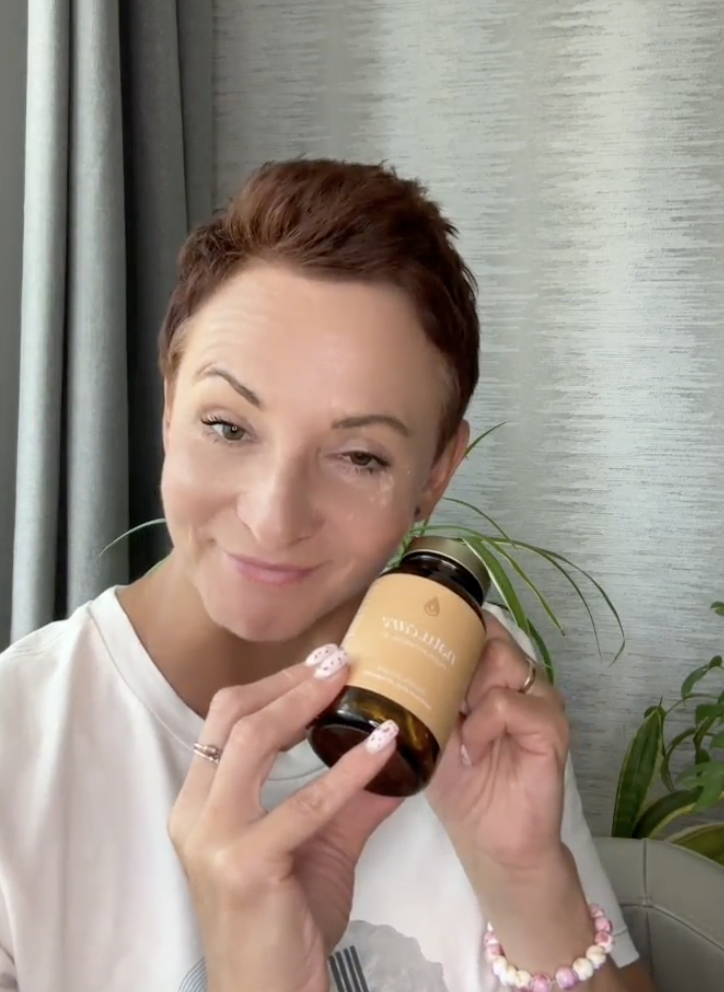
Produkt ma super skład, transparentną etykietę i co dla mnie jest ważne – małe kapsułki do połknięcia. Nie ma też nieprzyjemnego efektu odbijania rybą, który miałam spożywając inne produkty. Widzę znaczną poprawę odporności. Polecam!@Kasia P.
See also:
.- Important thyroid information .
- Hypothyroidism
- Hyperthyroidism
- Hashimoto's disease
- NAC (N-acetylcysteine) .
- NMN (nicotinamide mononucleotide)
- alpha-lipoic acid .
- Anemia
- How to take care of your health
- What are probiotics
What are antioxidants?
.Antioxidants (or antioxidants or antioxidants) are chemical compounds that protect the body's cells from the damaging effects of free radicals. Free radicals are intractable molecules that are led to by UV radiation, environmental pollutants or alcohol consumption or smoking, among other thingsand.
Antioxidants are substances that can repair damage caused by oxidative stress, prevent it or delay it..
 .
.
Ilona Krzak Master of Pharmacy
What are the most powerful antioxidants?
.There are several hundred, and probably several thousand (research to determine the number is still ongoing) different antioxidants. Therefore, there is no specific list of the best antioxidants. However, below you will find a few that are particularly important for your body.
Strong antioxidants areand:
- ascorbic acid (vitamin C), .
- tocopherols and tocotrienols (vitamin E),
- carotenoids (astaxanthin, beta-carotene, lutein, zeaxanthin), .
- ellagic acid, .
- ferulic acid, .
- anthocyanins, .
- glutathione acid, .
- exogenous polyphenols (catechins, procyanidins, resveratrol, curcumin), .
- coenzyme Q10, .
- flavonoids (quercetin, rutin, lysine).
The best antioxidants are vitamins A, C, D and E. Carotenoids, flavonoids, organic acids and selenium are also very effective..
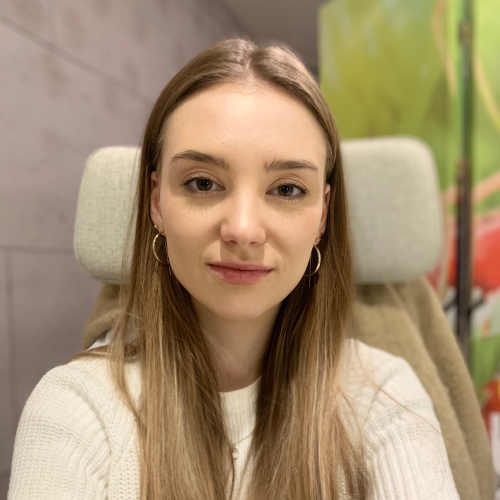 .
.
Julia SkrajdaDietitian
.Which antioxidant is best?
.There is no single best antioxidant. The effectiveness of these compounds depends on your body's needs. What's more, they all work together like your own army against free radicals.
Despite this, many experts say that astaxanthin is the best antioxidant. Compared to other antioxidants such as vitamin C, vitamin E, resveratrol or beta-carotene, astaxanthin has a higher efficacy against free radicalsand.
There is work by scientists suggesting that we can consider astaxanthin to be the most potent antioxidant available in nature, but remember that scientific research is still ongoing and knowledge is developing all the time.
Why are antioxidants important for the body's health?
.When there is a preponderance of free radicals over antioxidants in the body, oxidative stress occurs. This is a dangerous condition manifested by, among other things, fatigue and concentration problemsand.
Antioxidants neutralise free radicals by donating an electron to them, which stabilises them and prevents further damage to cells. Antioxidants can be natural (found in fruits, vegetables, herbs) or synthetic (produced in laboratories)and.
Antioxidants can be natural (found in fruits, vegetables, herbs) or synthetic (produced in laboratories)and.
What are the types of antioxidants?
.Antioxidants are divided into exogenous (externally derived from the diet or supplements) and endogenous (produced naturally by the body). Exogenous include vitamins A, C, E polyphenols and carotenoids. Endogenous include enzymes, glutathione, uric acid, bilirubin and melatonin.
Exogenous antioxidants
.Exogenous antioxidants come from diet and supplements. They include vitamins (A, C, E), polyphenols (in tea, fruit, vegetables), which have powerful antioxidant properties, and carotenoids (beta-carotene, lutein, lycopene, astaxanthin) key to protecting lipids and cell membranesand.
Endogenous antioxidants
.Endogenous antioxidants are substances produced by the body to protect cells from damage. They include enzymes (superoxide dismutase, catalase, glutathione peroxidase), as well as glutathione, uric acid, bilirubin or melatonin, which protect against free radical damageand.
What are lipophilic antioxidants?
.Lipophilic antioxidants are substances whose chemical structure allows them to dissolve in fats and lipids. This makes them particularly effective in protecting cell membranes composed of lipids. Examples of lipophilic antioxidants include vitamin E and carotenoids.
Antioxidants - effects
.Antioxidants exhibit numerous health-promoting properties. They are crucial for the body to function properly, and a lack of them leads to serious problems. How do antioxidants work?
.Neutralise free radicals
.Antioxidants protect the body from the damaging effects of free radicals. By neutralising free radicals, antioxidants minimise cell damage inside the body. By doing so, they also prevent cardiovascular or nervous system problemsand.
Protect against disease
.Regular consumption of antioxidants in food can help reduce the risk of various conditions such as cardiovascular disease, diabetes, cancer, and Alzheimer's or Parkinson's disease .
Improve immune system function
.Antioxidants can support the immune system, helping to fight infections and pathogenic microorganismsand. The result is better immune protection and, therefore, a lower likelihood of infection.
Slow down the ageing process
.Because free radicals contribute to cellular damage and reduced function in selected tissues, an adequate supply of antioxidants helps delay the ageing process at the cellular leveland.
Prevent UV damage
.Antioxidants such as vitamin C and E protect the skin from the damaging effects of ultraviolet radiation (use screen creams!), reducing the risk of sunburn. They also reduce photo-ageing and promote skin healthand.
Sunscreens usually contain antioxidant substances that stabilise the formula and provide additional protection against oxidative stress mediated by UV radiation. Antioxidants such as vitamin E, vitamin C, oxothiazolidine, ferulic acid (and its derivatives), ectoin and niacinamide are used in cosmetics with UV filters..
 .
.
Ilona Krzak Master of Pharmacy
Accelerate recovery after exercise
.The action of antioxidants contributes to the reduction of cellular damage and accelerates muscle recovery processes after intense exercise. This is particularly important for physically active peopleand.
Regular physical activity supports the fight against oxidative stress. I would point out, however, that too much exercise combined with a lack of adequate recovery is something that free radicals are very fond of..
 .
.
Julia SkrajdaDietitian
.Exercise itself has antioxidant effects by enhancing endogenous antioxidant defence mechanisms. In pathological conditions such as diabetes and cancer, this endogenous antioxidant effect is probably the most effective health-promoting mechanism..
 .
.
Ilona Krzak Master of Pharmacy
Dietary antioxidants
.Rich sources of natural antioxidants include fruits, vegetables, nuts, seeds, spices, beverages and other foods. A healthy diet is your greatest weapon in the fight against oxidative stress. See the table below for a list of examples of antioxidants.
|
Type of food |
Products rich in antioxidantsand |
|
Fruits |
|
|
Vegetables |
|
|
Nuts and seeds |
|
|
Cereals, legumes, sprouts |
|
|
Preparations |
|
|
Beverages |
|
|
Fungi |
|
|
Other |
|
When planning your menu, try to include the variety of products in this table. A diet rich in antioxidants supports the body and helps to fight free radicals.
Is coffee a good antioxidant?
.Yes, coffee can be considered a good antioxidant. The beverage contains many biologically active compounds that have potential antioxidant properties. Among these are chlorogenic acids, kahweic acid, ferulic acid or trolox, which have been shown to have the ability to eliminate free radicals.
Dietary tips to consume more antioxidants
.Products with antioxidants you already know, but how can you easily sneak them into your daily diet? Here are some dietary tips that can help you:
- Eat plenty of vegetables and fruit. Try to consume at least 5 portions of fruit and vegetables every day. Choose produce with intense colours as they often contain more antioxidants.
- Diversity is key. Follow the "rainbow on the plate" principle and add at least 3 different colours to each meal. A variety of colours translates into a variety of foods, which will allow you to increase your intake of different antioxidants.
- Storage. Choose produce that is fresh and store it well, as antioxidants can degrade. .
- Cooking. Prepare meals using heat treatment techniques that do not oxidise antioxidants, such as steaming, braising or baking.
- consume nuts and seeds. Nuts and seeds are a rich source of antioxidants. Add them to salads, smoothies and muesli, as well as oatmeal for flavour and crunch.
- Consume nuts and seeds.
- Incorporate herbs and spices. Cloves, curcumin, cinnamon and other spices are high in antioxidants. Add them to your dishes for improved flavour and health benefits.
- Don't forget tea. Drink green and black tea regularly. Tea is a rich source of antioxidants and can replace other beverages.
- Don't forget tea.
- Moderate alcohol consumption. Red wine contains resveratrol, which has antioxidant properties.
- Take adequate amounts of vitamins. Remember that vitamins, such as vitamin C and E, act as antioxidants, so make sure you're getting enough of them.
By incorporating these tips into your daily life, you will easily increase your intake of antioxidants, which will help maintain a healthy body.
Fresh basil or parsley leaves are great for improving flavour, but also provide valuable antioxidants..
 .
.
Ilona Krzak Master of Pharmacy
Antioxidants in cosmetics - examples
.Antioxidants are commonly used in cosmetics to protect the skin from free radical damage and UV radiation, as well as from premature ageing. Here are some of the most potent antioxidants in cosmetics:
- Vitamin C (L-ascorbic acid) - promotes the production of collagen, lightens discolouration and improves the overall appearance of the skinand.
- Vitamin E (tocopherol) - moisturises the skin, provides sun protection and synergises with vitamin C . .
- Vitamin A (retinol) - an anti-ageing nutrient that reduces wrinkles, improves skin texture and stimulates collagen synthesis .
- Ferulic acid - enhances the effects of vitamins C and E, protecting skin from UV radiation and pollution (don't forget screen creams) .
- Coenzyme Q10 (ubiquinone) - neutralises free radicals, reduces wrinkles and helps with cellular energy production .
- Green tea extract - rich in polyphenols, which have anti-inflammatory, anti-bacterial effects and protect against UV radiation . .
- Resveratrol - an antioxidant derived from red wine, which delays skin ageingand. .
- Niacinamide (vitamin B3) - reduces hyperpigmentation, soothes redness and stimulates ceramide production to improve skin elasticity .
- Astaxanthin - an antioxidant derived from the alga Haematococcus pluvialis, which has powerful anti-ageing and anti-inflammatory properties . .
- Hyaluronic acid - a major component of the intercellular space-filling substance that maintains skin hydration and elasticity .
Remember to pay attention to the ingredients in your cosmetics. This will help you choose the right product for your skin type and needs. If in doubt, consult a dermatologist or cosmetologist.
.Supplements with antioxidants
.Antioxidant tablets will allow you to replenish missing nutrients. With these supplements, you will combat dangerous oxidative stress faster.
Natu.Care Collagen Premium 5000 mg, mango & passion fruit

- Collagen content: 5000 mg marine collagen hydrolysate
- Additional active ingredients: vitamin C, low molecular weight hyaluronic acid (and L-theanine and coenzyme Q10 in cocoa flavoured collagen or vitamin A and vitamin E in mango–passion fruit flavoured collagen)
- Form: powder sachets
- Dose: 1 sachet per day
- Sufficient for: 30 days
Product description
Fish collagen from the Natu.Care brand in a dose of 5000 mg, based on certified ingredients of the best quality. Regular supplementation will positively influence the appearance of the skinóry, hairów and nails – they will be rebuilt and strengthened from the inside.
In addition to collagen, which is valuable for health and beauty, it also offers other active ingredients that help to maintain a youthful complexion, shiny hair and strong nails.
The formula contains a sufficient portion of the active ingredient to positively affect joints, the musculoskeletal system and immunity.
Natu.Care Premium Collagen is available in two flavours – Cacao Bloom and Rise&Shine. Both formulas are based on the following active ingredients: marine collagen hydrolysate, wild roseóbud extract and hyaluronic acid.
Additionally, Cacao Bloom contains natural L-theanine, coenzyme Q10 and defatted Dutch cacao. Rise&Shine instead contains vitamin E and vitamin A.
These are the best collagens in the world.
These best fish collagens on the market also rós taste – Cacao Bloom is a treat for chocolate lovers. Rise&Shine will appeal to those whoólike the refreshing taste of mangoófruit and passion fruit.
Pros and cons
Pros:
- Vitamin C supports the body's collagen production, enhancing its effectiveness.
- An effective dose of hyaluronic acid, which additionally supports skin hydration and joint health.
- Fish collagen absorbs 50% better. Additionally, the manufacturer specifies the fish species it is sourced from (Atlantic cod).
- The composition has been tested by the independent and accredited J.S. Hamilton laboratory.
- MSC (Marine Stewardship Council) quality certification, which confirms that the collagen source supports sustainable fishing practices.
Cons:
- None.
Additional information
Natu.Care's fish collagen receives praise for its delicious taste. You won't find the fishy aftertaste that often comes through in other collagens. Plus, you have two tasty flavors to choose from: cocoa and mango-passionfruit.
Active ingredients like coenzyme Q10, hyaluronic acid, and natural L-theanine provide anti-inflammatory and antioxidant benefits while slowing down aging processes.
User review
Super, after about 6 weeks of use, the skin on my face became noticeably firmer. Wonderful taste.
Ania ZalewskaNatu.Care customer
Natu.Care Premium collagen 10 000 mg, mango-maracuja
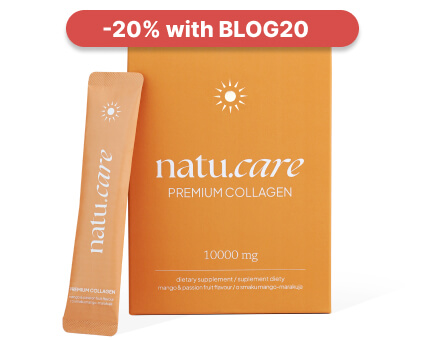
- Collagen content: 10,000 mg marine collagen hydrolysate
- Additional active ingredients: vitamin C, low molecular weight hyaluronic acid (and L-theanine and coenzyme Q10 in cocoa flavoured collagen or vitamin A and vitamin E in mango–passion fruit flavoured collagen)
- Form: powder sachets
- Dose: 1 sachet per day
- Sufficient for: 30 days
Product description
One of the strongest collagens on the market, whichós provides as much as 10,000 mg in a daily serving. This allows the formula to effectively support the condition of the skin, hair and nails.
With this supplement, you will support your beauty, which will allow you to visually stop the ageing process and feel a second youth!
Natu.Care Collagen Premium 10 000 mg comes in two flavours – cherry and mango-maracuja. Both formulas have the same product backbone – collagen, hyaluronic acid and vitamin C.
In the cherry version you additionally find glucosamine, chondroitin and Indian frankincense resin extract. Mango-maracuja, on the other hand, contains vitamin E and vitamin A.
Pros and cons
Pros:
- Tested collagen formula – SeaGarden, whose effects have been confirmed in clinical studies.
- Effective dose of hyaluronic acid, additionally moisturizing the skin and positively impacting joint health.
- Vitamin C supports the body’s natural collagen production.
- The composition has been tested by the independent and accredited J.S. Hamilton laboratory.
- The product has an MSC (Marine Stewardship Council) quality certification – the collagen source supports sustainable fishing practices.
Cons:
- None.
Additional information
Users praise Natu.Care Collagen Premium for the easy dissolvability of the powder.
User review
I noticed a significant improvement in my skin texture after a few weeks of taking collagen regularly. My complexion is now as soft as velvet!
Product description
The dietary supplement contains omega-3ᵀᴳ, or omega-3 acids in the form of trójglyceridesów. Scientific studies suggest that this form of fatty acidsós up to 2 times better absorbed than the estersós present in many dietary supplements on the market. This means that you are assured of their effectiveness and of supplying yourself with valuable omega acids.
Fatty acids omega-3 are derived from wild anchovy oil. It is a rich source of healthy fats that are essential for the health of the cardiovascular, immune and nervous systems, as well as the proper function of vision, joints muscles.
Scientific research suggests that wild anchovies are a good source of healthy fats.
Scientific research also suggests that an adequate intake of omega-3 fatty acidsós protects against and supports the treatment of depression and anxiety disorders. In addition, omega-3s influence the hydration and appearance of the skinóry and support healthy sleep.
.
The formula contains a total of 750 mg of EPA+DHA acidsós, which is three times higher than the recommended minimum of 250 mg for the Polish population. Omega-3 TG Premium has studies indicating that its TOTOX is 9, which is a very good result.
Supplementation of omega-3 fatty acidsóis recommended for anyone who does not eat 1–2 portions (approximately 300 g) of oily fish per week. Children during growth, seniors, physically active people, vegans and vegetarians, as well as patients undergoing cardiovascular treatment and prevention of heart disease also have an increased need.
Pros and cons
The dietary supplement contains omega-3ᵀᴳ, or omega-3 acids in the form of trójglyceridesów. Scientific studies suggest that this form of fatty acidsós up to 2 times better absorbed than the estersós present in many dietary supplements on the market. This means that you are assured of their effectiveness and of supplying yourself with valuable omega acids.
Fatty acids omega-3 are derived from wild anchovy oil. It is a rich source of healthy fats that are essential for the health of the cardiovascular, immune and nervous systems, as well as the proper function of vision, joints muscles.
Scientific research suggests that wild anchovies are a good source of healthy fats.
Scientific research also suggests that an adequate intake of omega-3 fatty acidsós protects against and supports the treatment of depression and anxiety disorders. In addition, omega-3s influence the hydration and appearance of the skinóry and support healthy sleep.
.
The formula contains a total of 750 mg of EPA+DHA acidsós, which is three times higher than the recommended minimum of 250 mg for the Polish population. Omega-3 TG Premium has studies indicating that its TOTOX is 9, which is a very good result.
Supplementation of omega-3 fatty acidsóis recommended for anyone who does not eat 1–2 portions (approximately 300 g) of oily fish per week. Children during growth, seniors, physically active people, vegans and vegetarians, as well as patients undergoing cardiovascular treatment and prevention of heart disease also have an increased need.
Additional information
The dietary supplement contains omega-3ᵀᴳ, or omega-3 acids in the form of trójglyceridesów. Scientific studies suggest that this form of fatty acidsós up to 2 times better absorbed than the estersós present in many dietary supplements on the market. This means that you are assured of their effectiveness and of supplying yourself with valuable omega acids.
Fatty acids omega-3 are derived from wild anchovy oil. It is a rich source of healthy fats that are essential for the health of the cardiovascular, immune and nervous systems, as well as the proper function of vision, joints muscles.
Scientific research suggests that wild anchovies are a good source of healthy fats.
Scientific research also suggests that an adequate intake of omega-3 fatty acidsós protects against and supports the treatment of depression and anxiety disorders. In addition, omega-3s influence the hydration and appearance of the skinóry and support healthy sleep.
.
The formula contains a total of 750 mg of EPA+DHA acidsós, which is three times higher than the recommended minimum of 250 mg for the Polish population. Omega-3 TG Premium has studies indicating that its TOTOX is 9, which is a very good result.
Supplementation of omega-3 fatty acidsóis recommended for anyone who does not eat 1–2 portions (approximately 300 g) of oily fish per week. Children during growth, seniors, physically active people, vegans and vegetarians, as well as patients undergoing cardiovascular treatment and prevention of heart disease also have an increased need.
Expert opinion
The dietary supplement contains omega-3ᵀᴳ, or omega-3 acids in the form of trójglyceridesów. Scientific studies suggest that this form of fatty acidsós up to 2 times better absorbed than the estersós present in many dietary supplements on the market. This means that you are assured of their effectiveness and of supplying yourself with valuable omega acids.
Fatty acids omega-3 are derived from wild anchovy oil. It is a rich source of healthy fats that are essential for the health of the cardiovascular, immune and nervous systems, as well as the proper function of vision, joints muscles.
Scientific research suggests that wild anchovies are a good source of healthy fats.
Scientific research also suggests that an adequate intake of omega-3 fatty acidsós protects against and supports the treatment of depression and anxiety disorders. In addition, omega-3s influence the hydration and appearance of the skinóry and support healthy sleep.
.
The formula contains a total of 750 mg of EPA+DHA acidsós, which is three times higher than the recommended minimum of 250 mg for the Polish population. Omega-3 TG Premium has studies indicating that its TOTOX is 9, which is a very good result.
Supplementation of omega-3 fatty acidsóis recommended for anyone who does not eat 1–2 portions (approximately 300 g) of oily fish per week. Children during growth, seniors, physically active people, vegans and vegetarians, as well as patients undergoing cardiovascular treatment and prevention of heart disease also have an increased need.
{ product:5TSsPSRG1GtiXSwMZuqjHt }}
The beneficial effects of antioxidants are undoubted in pathological cases (e.g. antioxidant deficiency), but everything in moderation. Excessive supplementation with antioxidants can be dangerous..
 .
.
Ilona Krzak Master of Pharmacy
See also:
.Summary
.- Antioxidants are chemical compounds that protect the body's cells from the effects of free radicals.
- Antioxidants are the chemical compounds that protect the body's cells from the effects of free radicals.
- The most potent antioxidants are vitamin C, vitamin E and carotenoids. .
- Antioxidants neutralise free radicals, protect against disease, improve immune system function and slow down the ageing process. .
- The highest levels of antioxidants are found in spinach, blueberries and dark chocolate. .
- Antioxidants can be found in cosmetics (e.g. vitamin A, vitamin C or vitamin E). .
FAQ
.What helps with oxidative stress?
.Above all, a healthy lifestyle can help with oxidative stress. Follow these recommendations to reduce free radicals in the body:
- Stay on a diet rich in antioxidants: fruits, vegetables, nuts.
- Get a diet rich in antioxidants: fruits, vegetables, nuts.
- Avoid harmful agents: tobacco smoke, alcohol, processed foods.
- Avoid the following.
- Use supplements: vitamin C, vitamin E, coenzyme Q10.
- Exercise actively: exercise regularly. .
- Manage stress: meditation, yoga, relaxation techniques. .
- Take care of sleep hygiene: 7-9 hours of sleep per day.
Reduce oxidative stress, protect cells and support body health.
What herbs for oxidative stress?
.The best herbs for oxidative stress are:
.- Ginkgo biloba (Ginkgo biloba): improves blood flow, protects nerve cells.
- Ashwagandha: adaptogen, which relieves stress, has anti-inflammatory effects.
- Curcumin: contains curcumin, counteracts free radicals and provides antioxidant protection.
Incorporate these herbs into your diet to protect your body from oxidative stress and improve overall vitality. Consult your doctor before taking supplements.
What foods have antioxidants in them?
.Good sources of antioxidants include fruits, vegetables, nuts and beverages. Examples of specific products include:
- Fruits: berries, strawberries, raspberries, grapes .
- Vegetables: spinach, broccoli, red peppers .
- Nuts: walnuts, almonds, pumpkin seeds .
- Beverages: green tea, red wine, pomegranate juice .
Drinking antioxidants neutralises free radicals, supports the immune system and delays the ageing process.
What is a powerful antioxidant?
.One of the most potent antioxidants is considered to be astaxanthin. Consider taking supplements with this ingredient and, above all, eat foods rich in astaxanthin, such as salmon, shrimp and crawfish. Astaxanthin protects cells from free radical damage, reduces inflammation and improves skin condition.
What fruits contain antioxidants?
.Fruits are very good sources of antioxidants. The best sources are:
- berries: blueberries, blackberries, strawberries, .
- citrus: grapefruit, oranges, lemons, .
- granates, .
- cherries, .
- kiwi, .
Antioxidants present in the fruit fight free radicals, support the immune system and contribute to body health.
Are oxidants healthy?
.Avoid excess oxidants as this can lead to oxidative stress and cell damage. Oxidants neutralise antioxidants, so keep a balance between the two. Examples of factors that increase free radicals (oxidants) include smoking, alcohol consumption or overexposure to sunlight.
Which tea has the most antioxidants?
.Choose green tea as it has the most antioxidants of all types of tea. Antioxidants, such as catechins, in green tea counteract free radicals and have anti-cancer effects.
Sources
.See all
.Emanuelli, M., Sartini, D., Molinelli, E., Campagna, R., Pozzi, V., Salvolini, E., Simonetti, O., Campanati, A., & Offidani, A. (2022). The Double-Edged Sword of Oxidative Stress in Skin Damage and Melanoma: From Physiopathology to Therapeutical Approaches. Antioxidants, 11(4), Article 4. https://doi.org/10.3390/antiox11040612
Epel, E. S., Blackburn, E. H., Lin, J., Dhabhar, F. S., Adler, N. E., Morrow, J. D., & Cawthon, R. M. (2004). Accelerated telomere shortening in response to life stress. Proceedings of the National Academy of Sciences, 101(49), 17312-17315. https://doi.org/10.1073/pnas.0407162101
.Furukawa, S., Fujita, T., Shimabukuro, M., Iwaki, M., Yamada, Y., Nakajima, Y., Nakayama, O., Makishima, M., Matsuda, M., & Shimomura, I. (2017). Increased oxidative stress in obesity and its impact on metabolic syndrome. The Journal of Clinical Investigation, 114(12), 1752-1761. https://doi.org/10.1172/JCI21625
Gosalbes, M. J., Llop, S., Vallès, Y., Moya, A., Ballester, F., & Francino, M. P. (2013). Meconium microbiota types dominated by lactic acid or enteric bacteria are differentially associated with maternal eczema and respiratory problems in infants. Clinical & Experimental Allergy, 43(2), 198-211. https://doi.org/10.1111/cea.12063
.IJMS | Free Full-Text | The Role of Oxidative Stress and Antioxidants in Liver Diseases. (n.d.). Retrieved 17 May 2023, from https://www.mdpi.com/1422-0067/16/11/25942
Imlay, J. A. (2019). Where in the world do bacteria experience oxidative stress? Environmental Microbiology, 21(2), 521-530. https://doi.org/10.1111/1462-2920.14445
Increased Nitrosative and Oxidative Stress in Platelets of Migraine Patients. (n.d.). Retrieved 17 May 2023, from https://www.jstage.jst.go.jp/article/tjem/211/1/211_1_23/_article
Jakubczyk, K., Drużga, A., Katarzyna, J., & Skonieczna-Żydecka, K. (2020). Antioxidant Potential of Curcumin-A Meta-Analysis of Randomized Clinical Trials. Antioxidants, 9(11), 1092. https://doi.org/10.3390/antiox9111092
Mancini, R. S., Wang, Y., & Weaver, D. F. (2018). Phenylindanes in Brewed Coffee Inhibit Amyloid-Beta and Tau Aggregation. Frontiers in Neuroscience, 12. https://www.frontiersin.org/articles/10.3389/fnins.2018.00735
Marseglia, L., Manti, S., D'Angelo, G., Nicotera, A., Parisi, E., Di Rosa, G., Gitto, E., & Arrigo, T. (2015). Oxidative Stress in Obesity: A Critical Component in Human Diseases. International Journal of Molecular Sciences, 16(1), Article 1. https://doi.org/10.3390/ijms16010378
McKay, D. L., & Blumberg, J. B. (2002). The Role of Tea in Human Health: An Update. Journal of the American College of Nutrition, 21(1), 1-13. https://doi.org/10.1080/07315724.2002.10719187
Peters, A., Veronesi, B., Calderón-Garcidueñas, L., Gehr, P., Chen, L. C., Geiser, M., Reed, W., Rothen-Rutishauser, B., Schürch, S., & Schulz, H. (2006). Translocation and potential neurological effects of fine and ultrafine particles a critical update. Particle and Fibre Toxicology, 3(1), 13. https://doi.org/10.1186/1743-8977-3-13
Petruk, G., Del Giudice, R., Rigano, M. M., & Monti, D. M. (2018). Antioxidants from Plants Protect against Skin Photoaging. Oxidative Medicine and Cellular Longevity, 2018, e1454936. https://doi.org/10.1155/2018/1454936
Pizzino, G., Irrera, N., Cucinotta, M., Pallio, G., Mannino, F., Arcoraci, V., Squadrito, F., Altavilla, D., & Bitto, A. (2017). Oxidative Stress: Harms and Benefits for Human Health. Oxidative Medicine and Cellular Longevity, 2017, 8416763. https://doi.org/10.1155/2017/8416763
Rad, N. R., Movahedian, A., Feizi, A., Aminorroaya, A., & Aarabi, M. H. (2022b). Antioxidant effects of astaxanthin and metformin combined therapy in type 2 diabetes mellitus patients: A randomized double-blind controlled clinical trial. Research in Pharmaceutical Sciences, 17(2), 219. https://doi.org/10.4103/1735-5362.335179
Reid, M. B., Stokić, D. S., Koch, S. M., Khawli, F. A., & Leis, A. A. (1994). N-acetylcysteine inhibits muscle fatigue in humans. The Journal of Clinical Investigation, 94(6), 2468-2474. https://doi.org/10.1172/JCI117615
Services, D. of H. & H. (n.d.). Antioxidants. Department of Health & Human Services. Retrieved 16 May 2023, from http://www.betterhealth.vic.gov.au/health/healthyliving/antioxidants
Sharma, R., Biedenharn, K. R., Fedor, J. M., & Agarwal, A. (2013). Lifestyle factors and reproductive health: Taking control of your fertility. Reproductive Biology and Endocrinology, 11(1), 66. https://doi.org/10.1186/1477-7827-11-66
Sivoňová, M., Žitňanová, I., Hlinčíková, L., Škodáček, I., Trebatická, J., & Ďuračková, Z. (2004). Oxidative Stress in University Students during Examinations. Stress, 7(3), 183-188. https://doi.org/10.1080/10253890400012685
Wang, Y., Andrukhov, O., & Rausch-Fan, X. (2017). Oxidative Stress and Antioxidant System in Periodontitis. Frontiers in Physiology, 8. https://www.frontiersin.org/articles/10.3389/fphys.2017.00910
Wierzejska, R. (2017). Can coffee consumption lower the risk of Alzheimer's disease and Parkinson's disease? A literature review. Archives of Medical Science, 13(3), 507-514. https://doi.org/10.5114/aoms.2016.63599
Hormozi, M., Ghoreishi, S., & Baharvand, P. (2019). Astaxanthin induces apoptosis and increases activity of antioxidant enzymes in LS-180 cells. Artificial Cells, Nanomedicine, and Biotechnology, 47(1), 891-895. https://doi.org/10.1080/21691401.2019.1580286
Niu, T., Xuan, R., Jiang, L., Wu, W., Zhen, Z., Song, Y., Hong, L., Zheng, K., Zhang, J., Xu, Q., Tan, Y., Yan, X., & Chen, H. (2018). Astaxanthin Induces the Nrf2/HO-1 Antioxidant Pathway in Human Umbilical Vein Endothelial Cells by Generating Trace Amounts of ROS. Journal of Agricultural and Food Chemistry, 66(6), 1551-1559. https://doi.org/10.1021/acs.jafc.7b05493
Zhang, X., Hou, Y., Li, J., & Wang, J. (2021). The Role of Astaxanthin on Chronic Diseases. Crystals, 11(5), Article 5. https://doi.org/10.3390/cryst11050505
Editorials
Meet the team

Ilona Krzak obtained her Master of Pharmacy degree from the Medical University of Wrocław. She did her internship in a hospital pharmacy and in the pharmaceutical industry. She is currently working in the profession and also runs an educational profile on Instagram: @pani_z_apteki

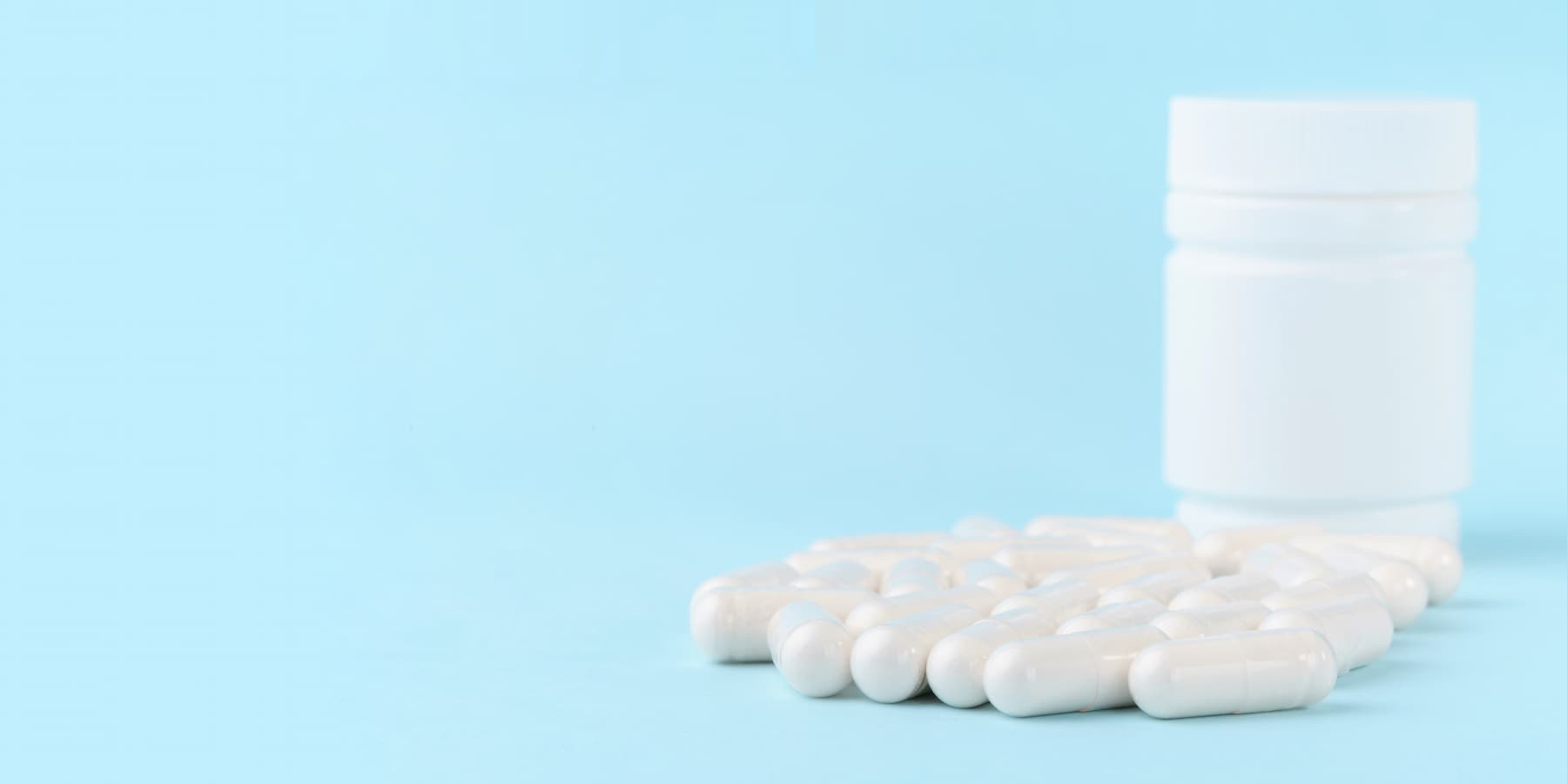
Chondroitin helps the joints and other elements of the body.
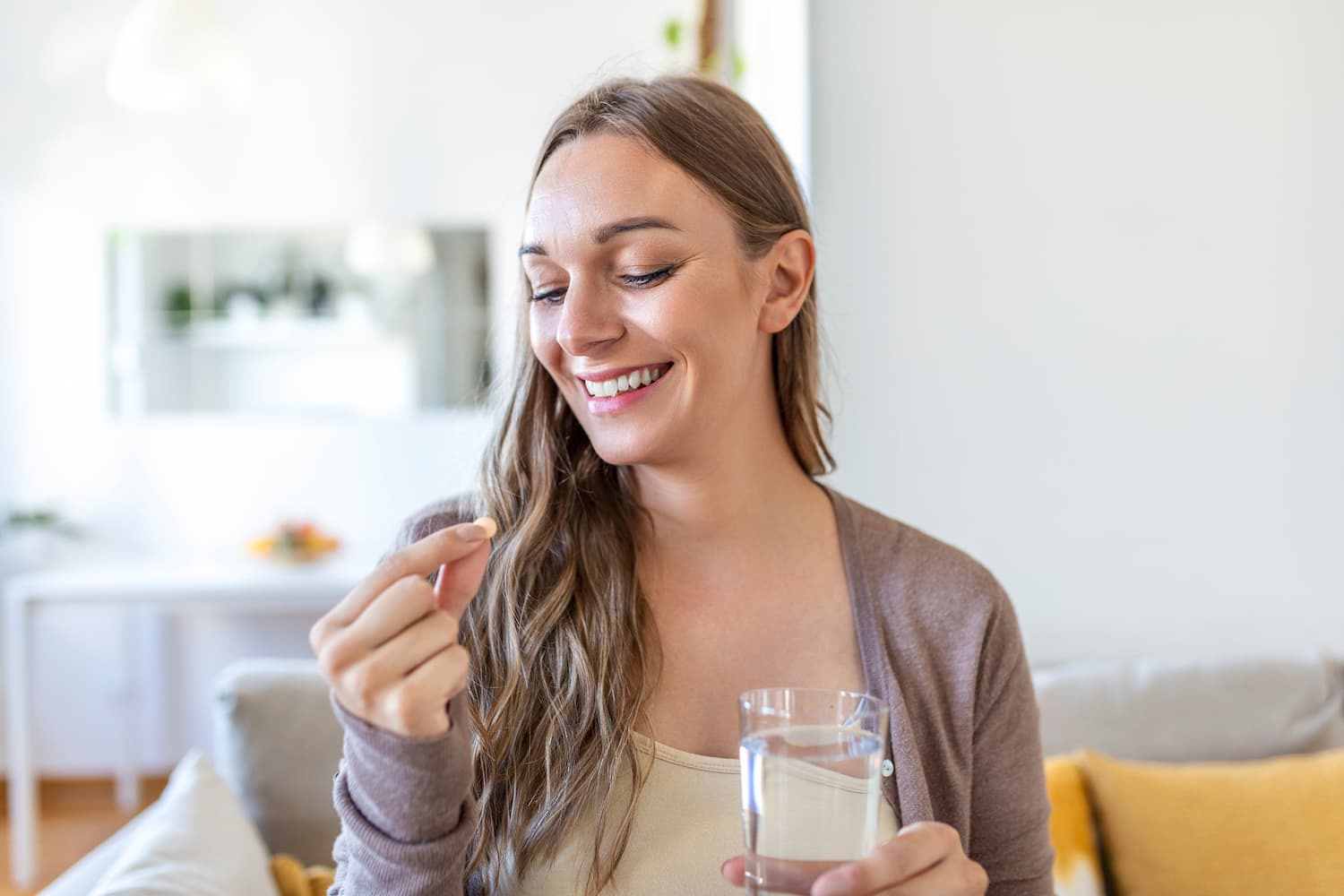
Glutathione is one of the most potent antioxidants for supporting the body's health. Find out how it works and where to get it from.
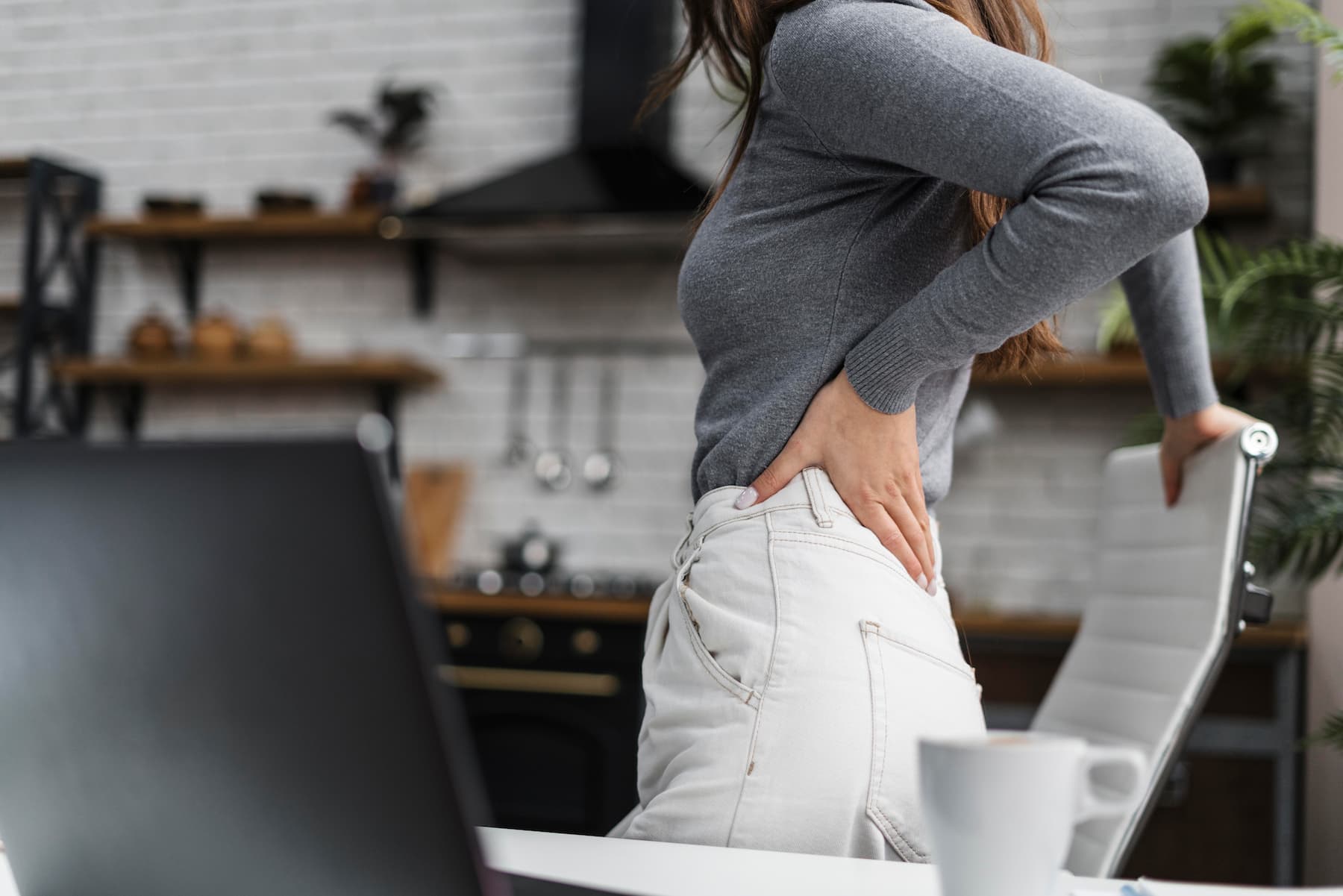
See why hip joints hurt and how to treat their ailments.
